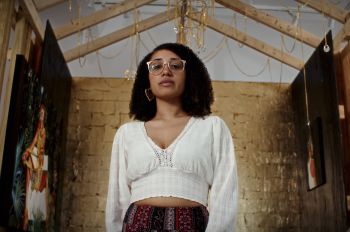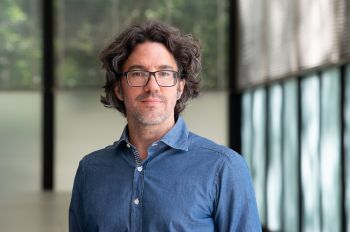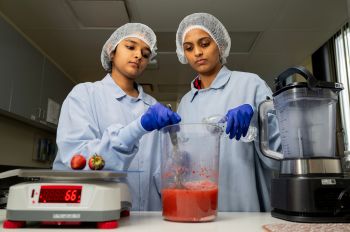Q&A with Humanities alumnus Anthony Sansone
The IIT Department of Humanities recently checked in with alumnus Anthony Sansone, who earned a Master of Science in Technical Communication in 2013. In this Q&A, Sansone discusses what he's up to now, and how he's utilizing his degree in his work. He also provides some insider advice on the technical communications field for current students!
1. Where has your career taken you since your studies at IIT?
I left the EMC Corporation, where I had worked since 2007, to work at Cleversafe, a Chicago-based storage technology startup that began at IIT.
2. What are the most exciting and challenging aspects of the work you do now?
I implemented a new documentation system that moved the workflow away from Microsoft Word to a programmatic approach that used reusable content blocks written in a lightweight markup language managed in a Git repository to generate consistent documentation in HTML and PDF. This became necessary as I had to streamline document production to make more time to track down changes from developers, edit those changes and review them before creating final documents. Sometimes your job becomes making your job more efficient and productive.
3. What do you hope to do next?
I just accepted a position as Senior Technical Writer with MongoDB, working in their education department. I will be part of a team of five growing to seven to create the documentation that includes live interactive examples. I hope to expand my breadth of technical knowledge and technical writing knowledge. I need to learn more on the application programming interface specialty of technical writing. The idea worries me, but I think that's good and healthy! I'm looking forward to working at a company with a product that has a very active user community and user base.
4. How does what you learned in your degree program at IIT assist or inform the work you do now?
What I learned at IIT informs a lot about what I do as a technical writer. It helps me identify what I need to explain in greater detail rather than assume knowledge on the reader's part based on what I learned in knowledge management and intercultural communication. It helps me create tighter, more focused documentation as I apply what I learned in technical editing. It helps me build new or update existing systems to streamline my documentation workflow using techniques and tools I used in my web design and development courses. In total, it helps me approach my work with greater focus and more critical eye as I endeavor to make concepts and procedures more easily understood by as broad an audience as possible. I really cannot think of a single course that I took that I do not recall some useful concept or tactic that I do not apply to my work or life on a regular basis.
5. Any advice for current students in your degree program?
Technical communications is exploding right now! User experience, development and technical writing especially are in high demand. Current students should focus on the concepts and tools they are being given in coursework. Being able to create and contribute day one will make a desirable job candidate. Moreover, students should investigate both what is being done and to what ends it is being done in the industry in the specialty (or specialties) that interest them. If they want to get into user experience, they should review design sites, blogs and books and see how the writers or developers of the material approached a particular problem and how they solved it. If they want to get into technical writing, they should review and contribute to open source documentation projects (most all open source development projects have or need documentation, which is also open source!) so they can understand the technologies used and how they can best explain them.
True story: one interview I had gave me two pages of C code and said: tell me what goes into this function, how it processes the inputs and what output in generates. I had never read C code in my life. But, since I understood object oriented programming through Karl Stolley's web development course, I could understand what were method calls, what parameters they accepted and follow the variables through whatever transformations they experienced to produce output. Also a true story, not being able to do that earlier cost me opportunities at Google and Amazon. Try to see what is being developed and used in real situations to see how you could contribute once you understand the concepts.
6. Anything else you want to discuss?
I really enjoyed my last class as a graduate student: Video Game Analysis. This was very much because it challenged me in unexpected ways! I thought I knew what I was going to get out of the class and I was wrong -- and happy for being wrong. Analyzing a film may take two or five or ten viewings, but it's the same film and you can pause it in the middle to make notes and the means to view a film are pretty much the same, only the delivery system has changed. Video games can -- and often do -- take much longer and for only one play. You can play something for 20, 40 or 60 hours and not experience everything it has to offer. As coursework, it would be difficult to do that, but you would still need to advance far enough into the game to see concepts, narratives, tools and techniques. This is all provided you have the ability to play the game well and correctly. Some games require some tweaking or prep to play on modern hardware. Now, playing enough of a different game to really scrutinize it very week? Really hard, but really fun. As part of the experience (and as the only grad student in the class other than the TA!), I had to write two articles for publication. Amazingly, I succeeded at that goal! Many grad students do not get published; I had two publications within one year: a book review and a chapter of an academic book. That was a really enjoyable experience. Most importantly, learning how to analyze video games did not ruin my appreciation of them! Sometimes you can "study something to death." That did not happen in this class, for which I am truly grateful.




